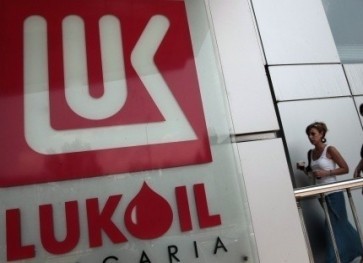LUKOIL BULGARIA LICENSE CASE POSTPONED FOR END OF SEPTEMBER
The Sofia Administrative Court, SAC, postponed Wednesday for September 28 the trial of the Lukoil Bulgaria company for the revocation of its license to operateexcise warehouses.
The warehouses are located at the company's refinery in the Black Sea city of Burgas, which is the only one in the country, and the oil terminal Rosenets.
If the expert report is not ready by then, the Court will reconvene in October.
At the end of the session, the Head of the Bulgarian Oil and Gas Association, Andrey Delchev, acting as Lukoil's attorney asked the matter to be referred to the European Union Court in Luxemburg. Judge, Kameliya Stoyanova, replied she needs time to decide on considering such move.
The arguments of the two sides - Lukoil and the Customs Agency became known in the courtroom along with the fact the latter want to have a speedy trial while theoil company would use any opportunity for delays, the Bulgarian Dnevnik daily writes.
The main thesis of the company is that the deadline to install the devices is too short for the scale of their production. The Customs counter that all other owners ofexcise fuel warehouses had complied with it. The Agency's lawyers insist Lukoil failed to undertake any measures to obey the law until the last minute and acted only after Customs Director, Vanyo Tanov, ordered the revocation of the license. The Customs lawyer, Stansislava Yordanova, explained that the refinery could have obtained an extension if they reacted in March 2010, when the law on the devices became effective.
Delchev argued that Lukoil had been complying with the law since its passing and in March it already had a project for installing the devices. He pointed out this is sophisticated equipment, manufactured only by several companies in the world, and years, not months are needed for the planning, the production and the delivery of such equipment. The attorney further explained the company had informed about the possible problem the highest echelons of the administration and the CEO of the Russian Lukoil, Vagit Alekperov even met with Prime Minister, Boyko Borisov.
Another Lukoil argument was that they could not install devices at the Rosenetstanker oil terminal since it had been a public-State property until July 30th when it was given on concession to Lukoil - one week after Tanov ordered the revocation of the license.
The company's representation asked the Judge to order an expert report to address scores of issues. Stoyanova approved only two of them and requested a BGN 6 000 deposit for the experts from Lukoil.
One of the rejected issues included the cost of mounting the devices, which the company says is a huge investment required by an "unstable administrative Act."
Per the Court rule, the experts are to only assess where in the refinery and theterminal devices must be placed and are not; the locations where there are already such devices; the time frame for their mounting and the cost. The refinery's lawyers insist there are mounted devices which already measure 26% of gas and 76% of diesel in the country.
Before ordering the expert report, the Judge rejected Lukoil's request to stop thelicense case until the Supreme Administrative Court, VAS, rules on the legality of the measuring devices order.
Until now the Court has only ruled that the refinery and the terminal can continue work while Lukoil is appealing Tanov's order to revoke the license.
The decisions of SAC will not bring the dispute to an end since they can be appealed with VAS.
The Lukoil saga emerged at the end of July when the Customs Head, Vanyo Tanov, issued the order to revoke Lukoil's license to operate excise warehouses over the company's failure to install the required devices within the deadline.
The Court, however, returned the license, and the refinery resumed fuel production.
One the very next day, the Commission for Protection of Competition announced they are beginning a probe to find out if there is a fuel cartel on the Bulgarian market.






